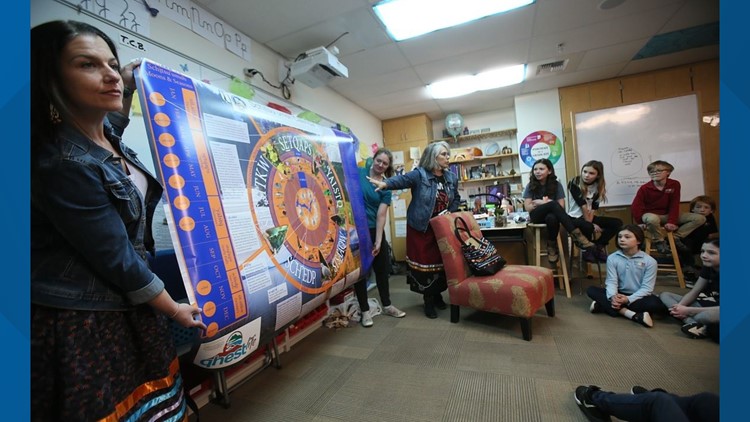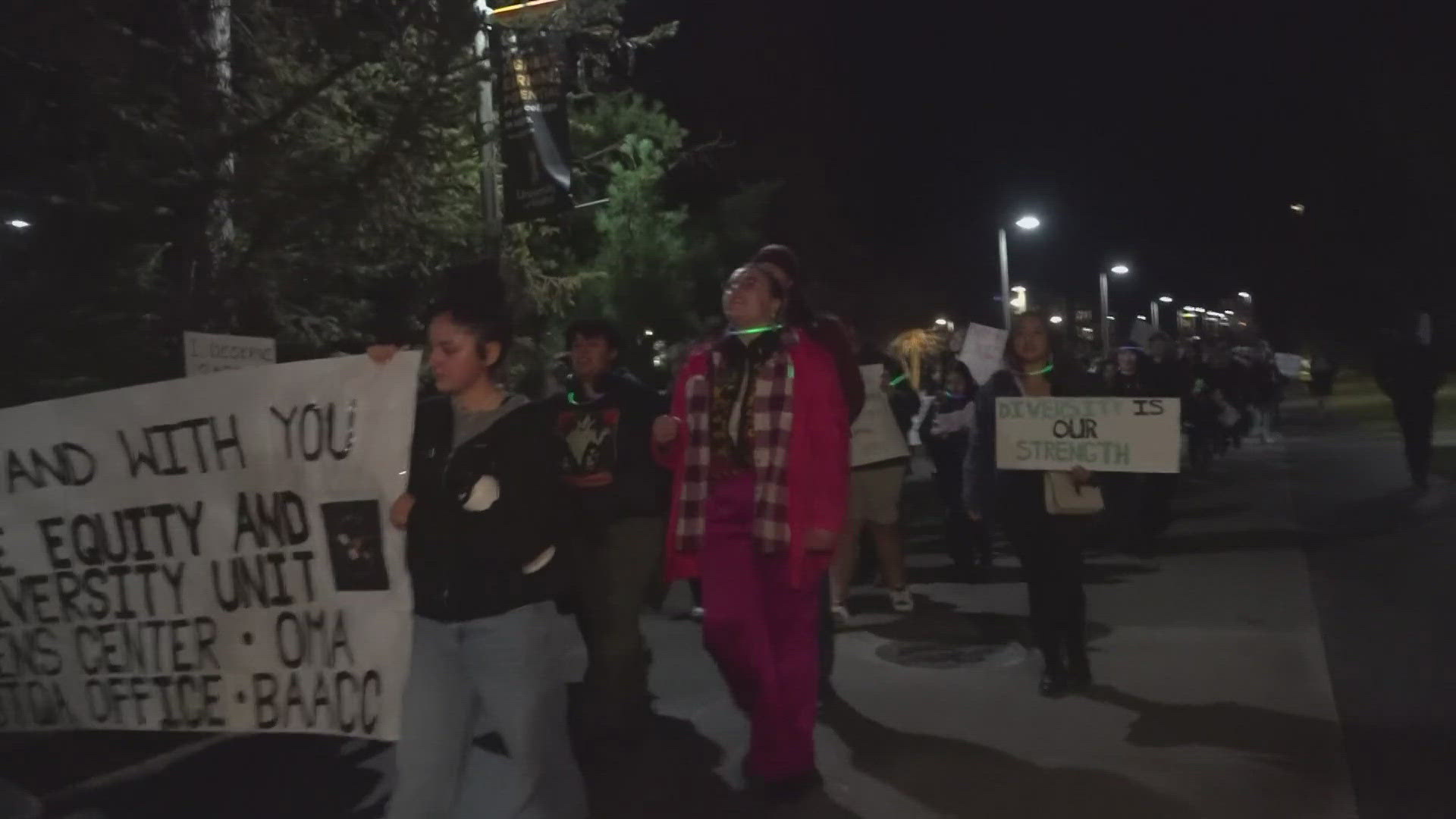COEUR D'ALENE, Idaho — The storytelling tradition of Indigenous people was brought to life by Sarai Mays as she spoke to two fourth-grade classes Wednesday morning at Sorensen Magnet School for the Arts and Humanities, as reported by our news partner, the Coeur d'Alene Press.
Students were captivated as Mays shared a cautionary Blackfoot tale of greed and forgiveness about four boys who stole sacred items from a tribal elder whose body was placed on a scaffolding on the burial grounds upon his death.
“When they saw all the things the elder had with him, they thought if they owned those things, that everybody would think that they were just as great as he was,” Mays said to the hushed audience. “They didn’t realize that it was his intelligence and his wisdom that the people admired.”
Pursued by the angry spirit of the elder, the boys in the story died one by one until just one boy was left. Realizing his fate, the boy spoke out loud to the elder and the Creator, profusely apologizing for taking the elder’s sacred belongings, the last of which was a bone whistle.
The next morning, the boy’s uncle found the boy alive, but the whistle was gone.
“His uncle tells him that if he had not told the elder how sorry he was during the night, told the Creator what they had done and truly apologized and asked for forgiveness, that he would not have woken up that morning,” Mays concluded.
The students clapped and murmured relieved responses.
“We tell stories like that to help our kids understand how serious consequences can be,” Mays said. “There’s lots of things that could happen, and we use those stories to help teach our kids those kinds of lessons.”
Mays, a southern Oklahoma Chickasaw Tribal member whose father is Coeur d'Alene, is the Indigenous Education program coordinator for the Coeur d’Alene School District, where she has worked for 10 years.
Before she retires Tuesday, she is delivering teaching tubs filled with books, posters and materials to enrich fourth graders' understanding of Idaho’s Indigenous peoples as the students study the state's history. Among the materials is the Encyclopedia of American Indian History and the book "United Voices: Awakening Cultural Understandings of Idaho's Five Tribes."
"I'm so excited," Mays said.
This passion project has been in the works for five years, as support has been difficult to generate. For a while, nothing came together to move the project ahead, but Mays persevered. She was finally propelled through a connection last year with the American Indian Library Association and generous donations to help fill the tubs.
"I kept it in the back of my head, thinking, 'Maybe someday it would work,'" she said. "I was working on trying to get more books into school libraries, and all of a sudden it all came together."
After reviewing curriculum a few years ago, Mays saw the content had information about Sacajawea and the Lewis and Clark Expedition, but little or nothing about Idaho's local tribes.
"There was a mention, but really no information to go along with it. That spurred me on," she said. "I have grandkids in the district, and they were disappointed."
Mays was accompanied by Indigenous education program intern Victoria Williams, a Cherokee Tribal member, to provide the resources to different classrooms in the community.
Idaho is home to five different American Indian tribes, while 567 different tribes are spread across the country with more that are unrecognized by the U.S. About 300 Native American students from about 65 different tribes attend the Coeur d'Alene School District, Mays said.
Crystal Bain's fourth grade student Ronan Granier said he was glad Mays and Williams gave his class materials on local Indigenous people because he has struggled to find good information about them while researching on the internet.
"When you search, it doesn't show a lot of that stuff," Ronan said. "It feels more engaging when it's actual Indigenous people talking about their experiences. We know it's truthful. I love the different stories and the way they look at life differently from other people all around the world. I love their culture. Everything has meaning, it's just really cool."
Bain said her students are learning all about Indigenous people through lessons that include dance, games, traditions, ceremonies and more.
"Knowing other cultures enriches your life no matter what," Bain said. "Knowing where Idaho came from to start with and knowing the history of us is so important."
The Coeur d'Alene Press is a KREM 2 News partner. For more from our news partner, click here.



